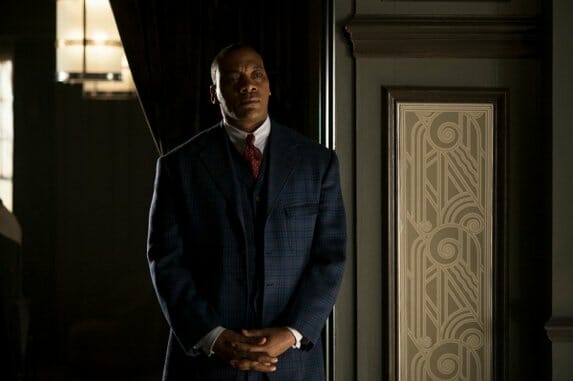Boardwalk Empire: “William Wilson” (Episode 4.07)

Sometimes it’s difficult to shake the feeling that Terrence Winter and the rest of Boardwalk Empire’s writers have little idea what it is that makes their show interesting. “William Wilson” is far from alone in juxtaposing strong material with the deeply banal, but in a way very different from something like The Sopranos or Breaking Bad. Within other shows, home lives reveal depth and thematic material within the violent, crime-based material that serves as their primary focus, but for Boardwalk Empire those banal stories, the ones too dull to carry their own show, are themselves frequently the main storyline.
Even moreso than in previous seasons, this has been season four’s particular weakness, perhaps because the show has become even more scattered than it was before. With so many plots spinning, there’s little time for relationships that don’t move the story forward, so at this point those have been left more or less by the wayside. If you were to ask me at this point in time what season four is about, I would talk about the land deal in Florida and the gang wars in Chicago, but just as much if not more time is spent on the previously almost unknown Willie Thompson’s time in college and Gillian Darmody recovering from heroin addiction. While Boardwalk Empire’s stories always come together at the end of the season, watching them develop in the meantime can be dreadfully boring.
“William Wilson” began with a literal bang, as Al Capone shoots a cop in the head on a public street in the daytime in front of plenty of witnesses. It’s the beginning of his revenge against O’Bannon, who he believes is at fault for his brother’s death, but the monumentally important scenes between Al and his boss Johnny Torrio are doled out sparingly. There’s always a thin line between building anticipation and putting the audience to sleep, and unfortunately this episode tips over to the later. It’s not just the violence that makes this storyline more interesting, though; it’s the unpredictability. Darmody’s storyline, by contrast, is sheer melodrama that hasn’t had an interesting turn this season. Even if she were an empathetic character, her story this season warrants about five minutes of actual screentime while it’s been given more than five times as much.
-

-

-

-

-

-

-

-

-

-

-

-

-

-

-

-

-

-

-

-

-

-

-

-

-

-

-

-

-

-

-

-

-

-

-

-

-

-

-

-








































